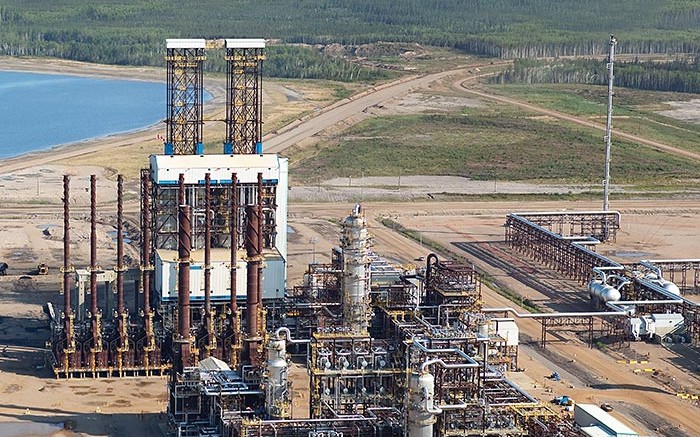VANCOUVER — Diversified energy producer Canadian Natural Resources (TSX: CNQ) took a loss during the second quarter after a corporate tax increase in Alberta, and it isn’t the only outfit in the oil and gas space feeling the squeeze from revamped policy initiatives by the recently elected New Democratic Party government in Alberta.
The Calgary-based energy giant cranked out 805,547 barrels of oil equivalent during the quarter, but reported a US$405-million loss, or 37¢ per share. Canadian Natural attributed most of its underwhelming financial performance to a US$579-million non-cash charge based on future tax liability. The company said it would have earned US$178 million, or 16¢ per share without the tax hit, and other one-time items.
“The resilience of our diverse and well-balanced asset base, the robustness of our business model and the effectiveness of our strategies — combined with our ability to execute these strategies — has allowed us to quickly react to a low-commodity price environment. Canadian Natural is built to withstand low-commodity prices,” president Steve Laut said during a conference call.
The company is in the midst of a cost-cutting initiative it started earlier in the year, with its annual budget falling by US$3.1 billion, or 36¢, since 2014. Canadian Natural deferred US$2.4 billion in capital spending in January, and tacked on another US$695 million in cuts over the past five months. Capital spending this year is expected to total US$5.5 billion, with nearly 50% allocated towards expanding the Horizon oilsands project.
“We’ve been here many times before, and each and every time we’ve come out of the cycle stronger, and on the winning side. I expect this cycle to be no different,” Laut added.
But the company hasn’t pulled any punches in its criticism of Alberta Premier Rachel Notley’s decision to boost the provincial corporate tax rate to 12% from 10% as of July 1, despite falling crude oil prices.
In late May, Canadian Natural cancelled an investor open house on future spending “due to the current uncertainty surrounding the government of Alberta’s review of royalty, taxation, environmental and greenhouse gas policies.”
The company doubled down during its second-quarter conference call when it cited a report from a third-party research firm based in Edmonton that said lower industry cash flows — triggered by higher taxes — could impact Alberta’s employment situation. CFO Corey Bieber indicated that the “lower future capital reinvestment likely equates to 4,100 fewer person years of direct, indirect and induced employment, with follow-on impact of higher income taxes on future income streams.”
During the second quarter Canadian Natural increased its revolving syndicated credit facility from US$1.5 billion to US$2.4 billion. Laut also said that Canadian Natural remains “committed to monetizing its royalty assets,” which generate US$96 million on an annualized, first-quarter basis. The move would mirror Cenovus Energy’s (TSX: CVE; NYSE: CVE) recent sale of its royalty lands package to the Ontario Teachers’ Pension Plan for US$3.3 billion in cash.
Canadian Natural shares have traded within a 52-week range of $29.59 to $47.53, and last closed at $29.77. The company has 1.1 billion shares outstanding for a $32.6-billion market capitalization. Other Alberta-based oil producers also reported tax hits during the second quarter. Imperial Oil (TSX: IMO; NYSE-MKT: IMO) said its deferred expense totalled US$320 million, while Cenovus announced a US$315-million tax expense.


Canadian Natural Resources material loss was caused by the reduction in oil prices and the NDP tax.
And by not cutting their dividend. They could always pinch shareholders to retain jobs/earnings, rather than pinning it on the NDP.